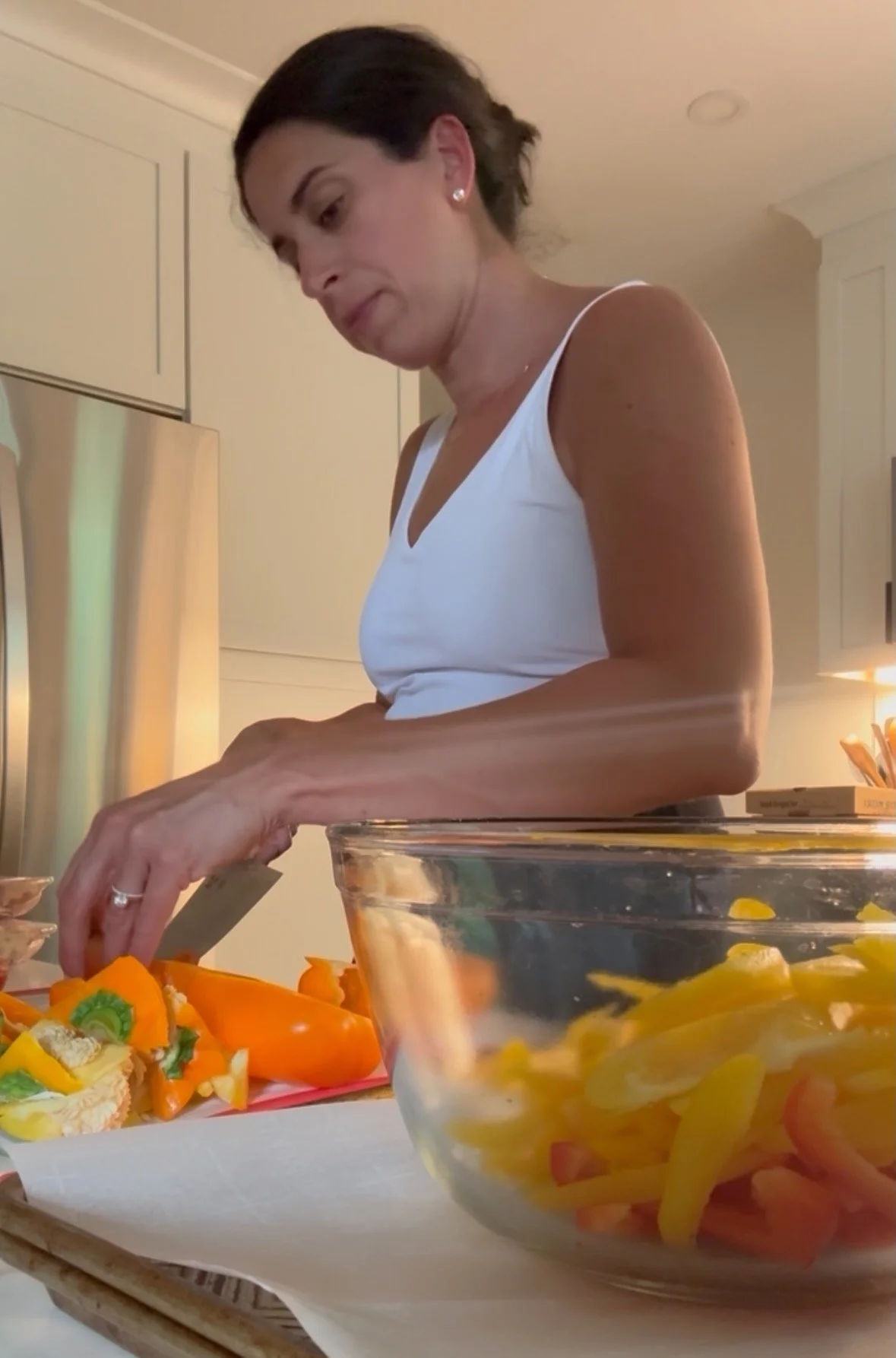TROUBLESHOOTING WHEN WEEKEND PREP ISN’T FEASIBLE
Food prep is one of those habits that gets a lot of hype — and for good reason. It can save you time, reduce decision fatigue, and make it easier to hit your nutrition goals without scrambling. But there’s an unspoken assumption in much of the “meal prep” advice out there: that you have the time (and hell, the desire) to spend part of your weekend cooking and organizing meals for the week ahead.
The reality? That’s not always the case. Even for those of us that really, really want it to be able to happen.
Whether it’s a packed weekend of kids’ activities, travel, unexpected plans, or simply wanting to rest instead of cook, weekend prep won’t always happen. And that’s okay. What matters more than when you prep is that you set yourself up for success at some point. Here’s how to troubleshoot when weekend prep just isn’t feasible.
1 | SHIFT YOUR PREP TO A DIFFERENT DAY
Who says prep has to be on Sunday? If you know your weekend will be slammed, choose a different day to prep — maybe a quieter weeknight, or a weekday morning if your schedule allows. (You don’t just have to do this on the “off” weeks where prep isn’t fitting in your weekend…you are allowed to do this all the time if it is better/more convenient/more fun/etc. for you!) Even 30 minutes of prep mid-week can set you up for the following days.
2 | THINK “MICRO PREP” INSTEAD OF FULL PREP
If you can’t do a big batch session, break it down into smaller chunks:
Chop and store fruits or veggies while your morning coffee brews
Grill or bake extra protein while you’re making dinner
Portion out snacks while unloading and putting away groceries
These small, scattered actions add up — without requiring a block of hours.
3 | LEAN ON CONVENIENCE OPTIONS
This is where frozen, pre-cooked, or ready-to-eat items become your best friend. Pre-washed salad greens and steam-able frozen veggies are. still. vegetables. Rotisserie chicken is. still. protein. Canned beans and microwavable rice – you guessed it, they count, too. Low-effort, high-payoff staples that keep you fed without major prep can be key. Full disclosure: some of these pre-packaged or semi-prepared options cost a little bit more, so this may need to be a personal decision you need to make about where your resources (all of them: time, energy, money) are going and what is worth it for you.
4 | DOUBLE UP WHEN YOU DO COOK
You might not have a dedicated “prep” day, but odds are that you still cook here and there. When you do, make double — and stash the extra in the fridge or freezer. Future you will thank present you.
5 | PLAN (EVEN JUST A LITTLE)
Even if you’re not physically prepping anything ahead of time, taking a few minutes to think through your week’s meals can save a ton of stress. Jot down 3–4 dinner ideas, make sure you have breakfast and snack options, and keep a few easy back-up meals in mind.
The bottom line: Meal prep doesn’t have to be an all-or-nothing, Sunday-afternoon marathon if you don’t want it to be. If weekends are a no-go, your prep can be smaller, scattered, or shifted — and still be just as effective. Consistency comes from finding your version of prep that works in the season you’re in.
Looking for support to make some of these shifts? Nutrition coaching can help with giving you some extra guidance. (And applying doesn’t have to feel scary – filling out this form puts us in touch so that we can have a (free!) conversation and get to know each other to make sure we’re a great coach/client fit!)

